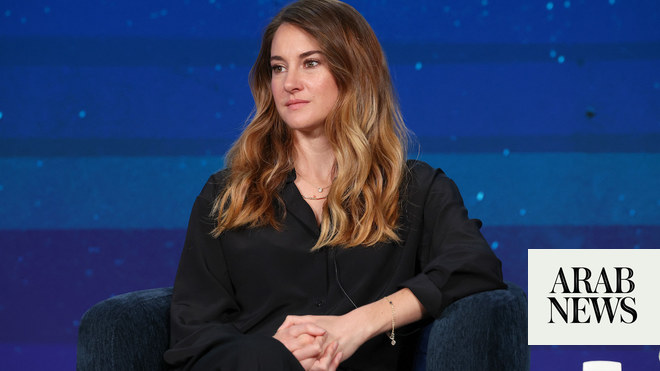
In Ksangatifu, Kilifi county, south-east Kenya, Muslims sit with their young imam, Mohammed Omar, outside their mosque, awaiting sunset. That is when they can have their iftar, the evening meal with which Muslims end their daily Ramadan fast.
Fatuma Kombe, 40, prepares a simple maize-flour porridge for those in her village who are struggling. Food prices have soared in east Africa and many people do not have anything to eat for their iftar; others eat a watery porridge and wild plants.
Mohammed Omar, 22, his wife, Husina, and their children mark iftar. He says: ‘In the last Ramadan we had a lot of green vegetables, but this Ramadan this place is dry; it is like a desert. Some people don’t even have food to eat. But if some people bring donations, then this is shared with the community. If there are no donations, we have to continue waiting.’
Toma Abdul, 39, in Nairobi’s Kibera shanty town, prepares gurusa din – pancakes eaten with potato and tomato. The price of flour has risen by more than half since last year, and she can no longer afford oil. She says: ‘We used to add sugar and oil. Without oil it is not tasty. Everything has gotten worse, more than during the pandemic. The fate of Ukraine has cost us a lot because everything is rising. We can just pray to Allah to stop the fighting.’
As she breaks her fast, Abdul reflects on the relative comfort that she and her family live in. She says: ‘I am feeling very happy. Even if we have only a little, we are together as a family. So fasting is not difficult.’
Abdul, who lives with her sister and aunt, ate rice with a sauce for yesterday’s iftar and the day before that ugali, a maize porridge, with a green vegetable. She says: ‘When we fast everyone is very kind. Ramadan is very nice. It does not mean that we have to eat a feast. You have to be strong and be with Allah.’
Khadja Ismail, 31, waits at an Islamic Relief food distribution site in Kibera. She says: ‘During Ramadan, Allah opens doors for us, maybe we get donations.’
Ismail stands outside her home, now with the ingredients she needs for iftar. ‘At least now we don’t struggle like we do during normal days,’ she says of Ramadan.
Ismail helps her daughter wash her hands before they break their fast.
Ismail and her family eat a few dates to break their fast. She says: ‘After iftar I feel energetic, I feel fresh, I feel OK. Yes, during Ramadan Allah opens doors for us.’
Saida Katana, 64, of Ksangatifu village, makes a drink for iftar. She says: ‘I worry because at my age I’m still struggling to feed my family.’ Her husband died and her two sons were left disabled by accidents. She takes any labouring work available and grows tomatoes but she has had no food for this Ramadan. She says: ‘We used to eat better because we were pumping water and harvesting leafy, green vegetables. But now, even getting vegetables is a problem. There is a drought; there’s not even grass for grazing.’
Katana says: ‘Yesterday I did not take iftar because I did not have anything to cook. There is water in the river but when there is no money for the fuel you can’t pump water and we cannot grow crops.’ Islamic Relief contributed to buying a water pump and pipes for the community. Katana received chickens and goats to help her take care of her family.
Mama Shakila, 44, of Ksangatifu, prepares banana for iftar. All the family helped to buy flour for ugali, which they will also eat for iftar. Shakila has a few animals, given to her by Islamic Relief. ‘When things are tight, really tight, we sell one of the goats and use that money to sustain ourselves. Meanwhile, they are reproducing,’ she says, ‘but if I keep selling my goats I will spend all the money and then I’ll be finished. And when a problem arrives, how will I survive?’
Shakila prepares bananas for iftar. She has little for this Ramadan. ‘To those people who are like us, I want to say to them that, “there are other people who also don’t have food like you. Like me, I don’t have [food], but I am surviving.”’
Shakila lives with her children and grandchildren, 12 in total, celebrating iftar together every night. There have not been good rains for months. ‘This Ramadan is harder than last year because of the drought and because there is no money’ she says. ‘Last year we could harvest cassava from the farm and we had some money to buy rice. We even bought a goat so we could have some meat. But this time we can’t afford any of that.’
‘If I had not received these goats there would be nothing to depend on,’ says Sulaiman Charo Shutu, 62. Living all his life in Kisangatifu, he has seen the land and climate change. ‘There are times when we get food, then there are times when we don’t get food. Sometimes you don’t eat at all in a day, then the next day you get a kilo of something and you eat,’ he says. People come to him for advice. ‘Sometimes there are family disputes and I intervene to bring reconciliation. As an elder, I also fight for the rights of the people here.’
Shutu prepares a drink for iftar made from wild plants. ‘This is the second year that the drought is biting,’ he says. ‘It has affected us very much. ‘If the rain comes then also a lot of work comes. People start planting and cultivating. But with a drought nobody cultivates. Even the people who own big farms don’t, so they don’t need labour. With drought there is no cultivation, no employment; children get chased out of school, and they can’t get enough food.’
Shutu and his family at iftar. ‘Yesterday we ate ugali with a green weed [and] we are eating that today for iftar,’ he says. ‘Mbrenda is a weed that grows in damp places ... we don’t buy it but go searching for it.’
Shutu and his family at iftar. He received eight chickens and two goats from Islamic Relief but keeping animals alive is also difficult. He will not be eating any of his precious animals this Ramadan. ‘We rear them well and when they give birth we are able to sell the offspring,’ he says. ‘One of our goats died because of the drought and lack of food, but the rest are fine. We have even been able to educate one of our girls by selling a goat.’
With harvests failing and food prices high, Garama Katana’s family had nothing to eat for iftar. ‘The first day of Ramadan I did not eat anything,’ says Katana. ‘I fasted and then went on into the fast of the second day. Fortunately, the other days I have been eating from the mosque.’ Katana has eight sons. The women in Kisangatifu have started a community savings scheme. ‘This year is good,’ she says. ‘We have realised that when we are together our problems feel less … we can donate a little bit and put it all together and buy some food and cook together.’
Katana, 45, with the porridge brought from the mosque for her sons for iftar. ‘The drought has been hard,’ she says. ‘The drought has reduced our harvest and has increased the prices of things. No matter how hard we work we can’t make as much because of the drought.’ At the mosque women make a watery porridge from maize flour. ‘I eat that porridge is because there’s no food in the house,’ Katana says.
Katana at iftar with her family. ‘The children want to eat, to dress, get educated,’ she says. ‘Some of them are chased out of school because of lack of school fees. ‘There are times when they miss a meal completely. Life is not that easy, we are struggling. But we will persevere.’











